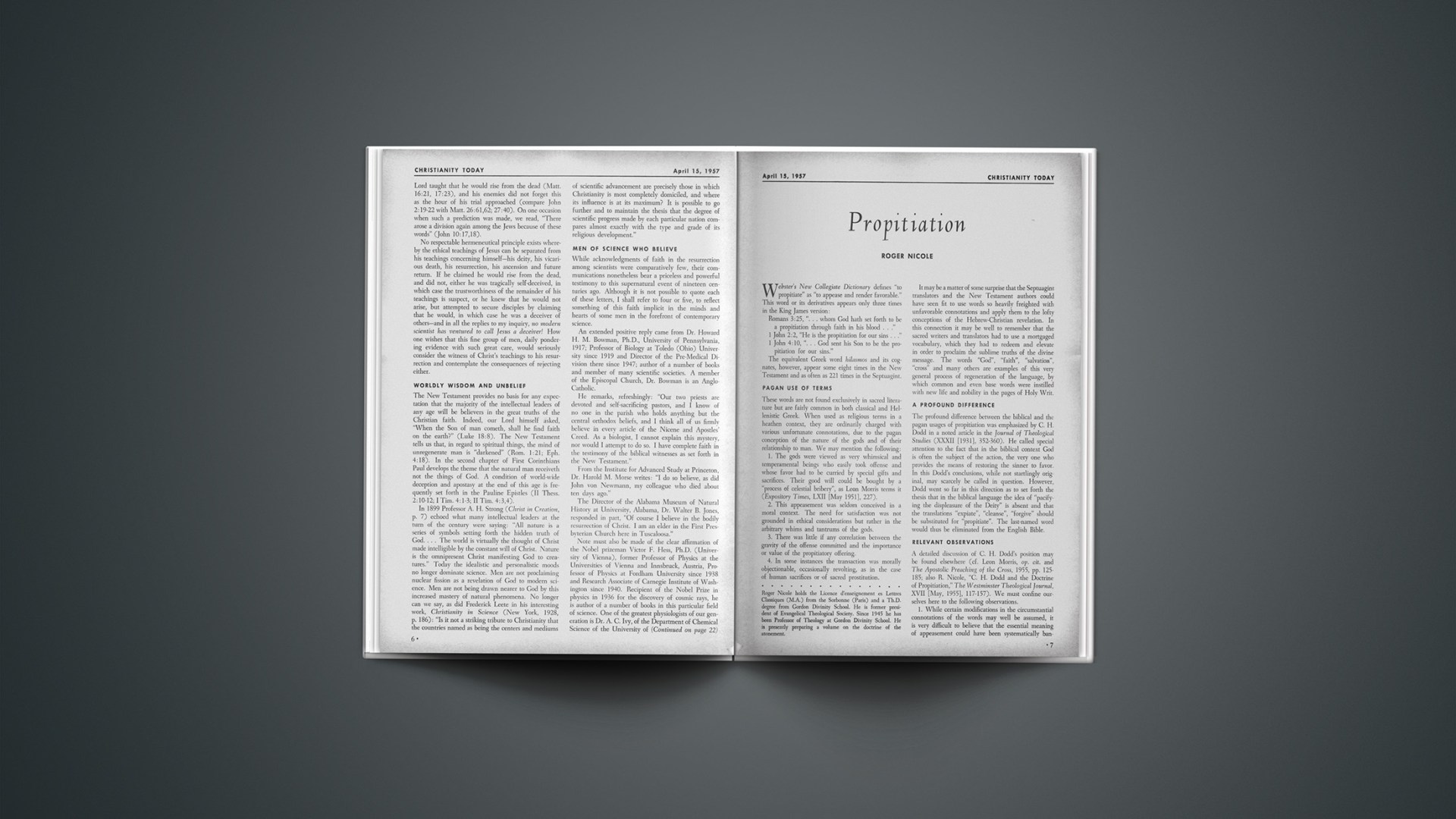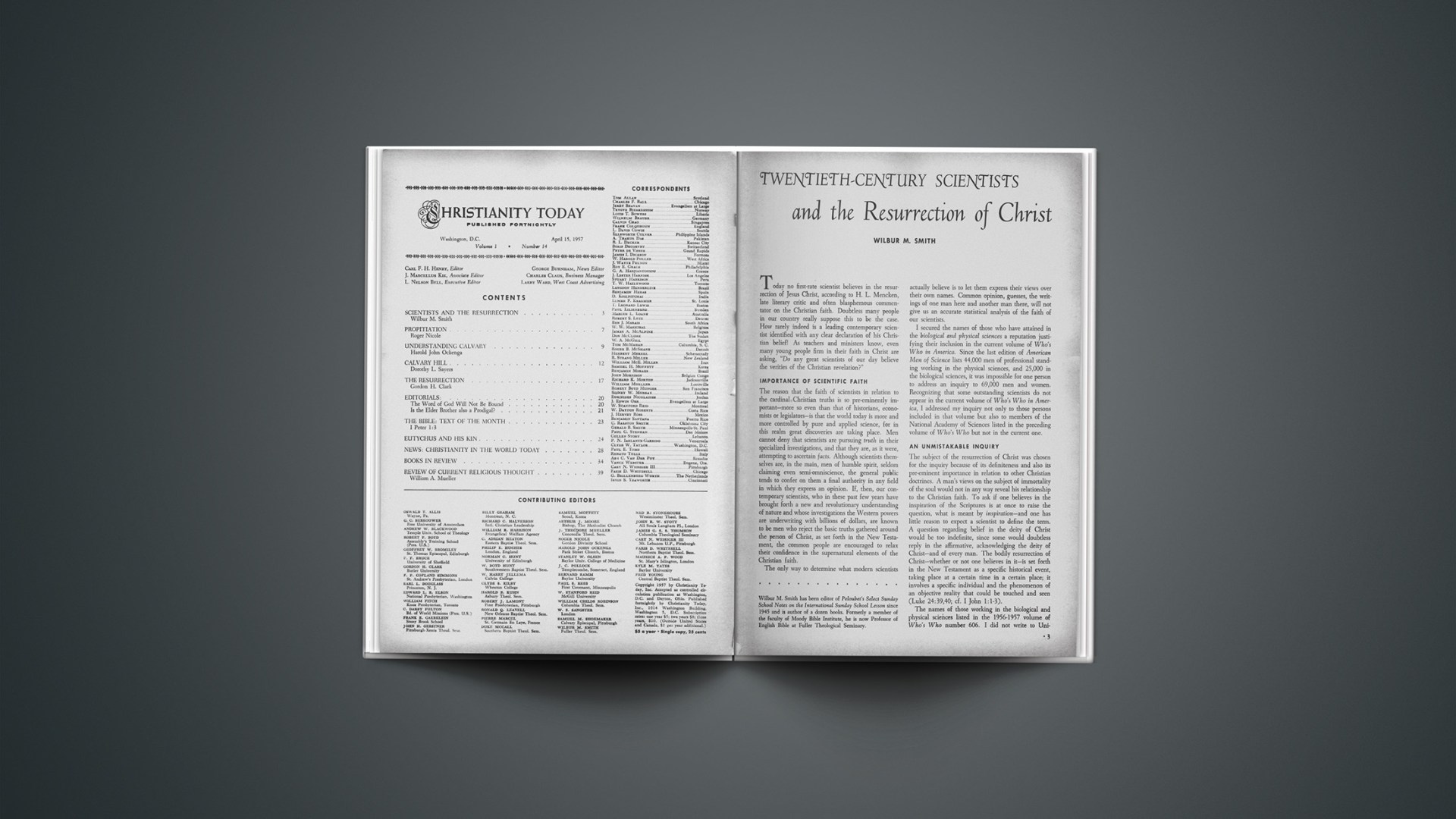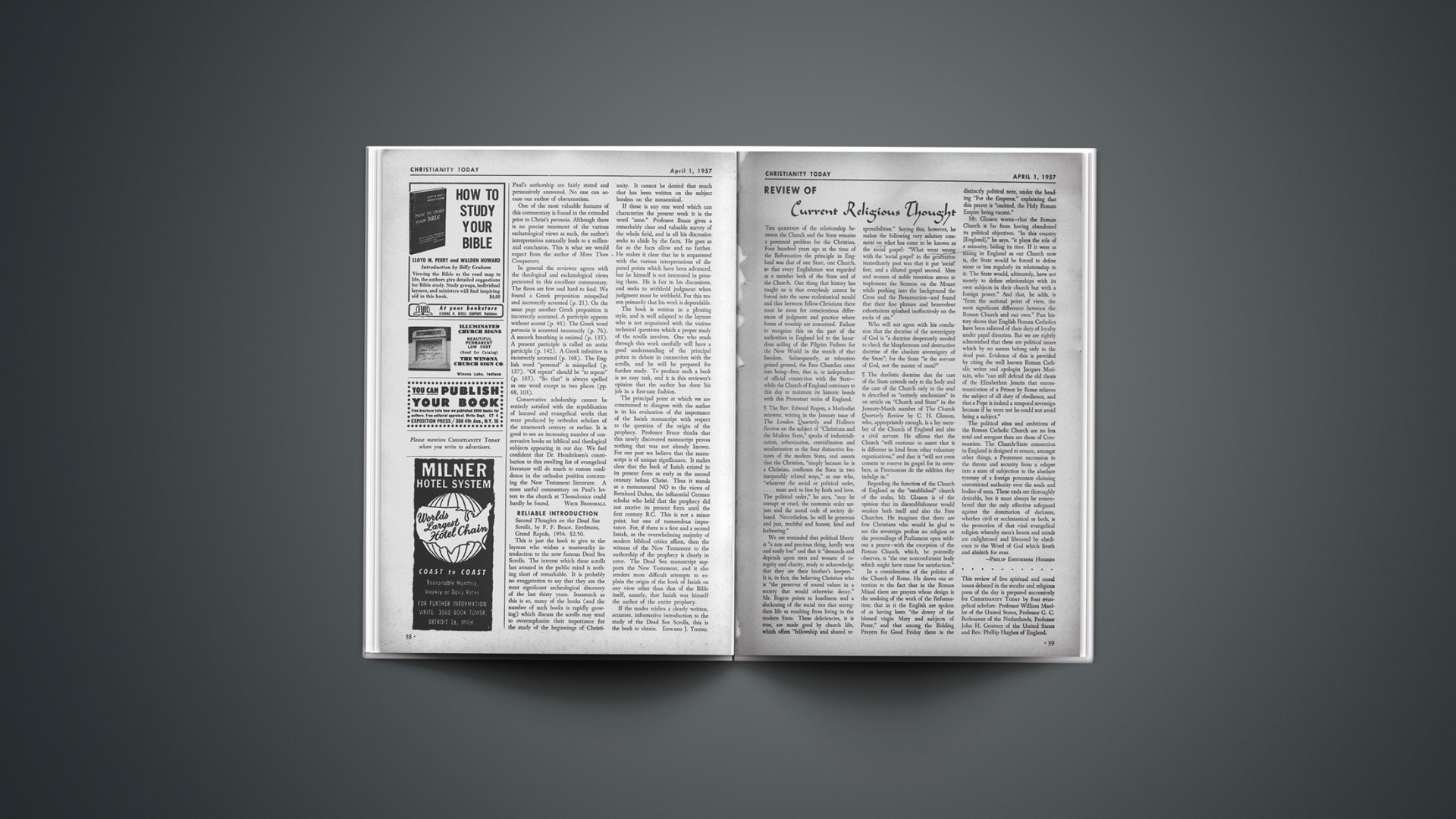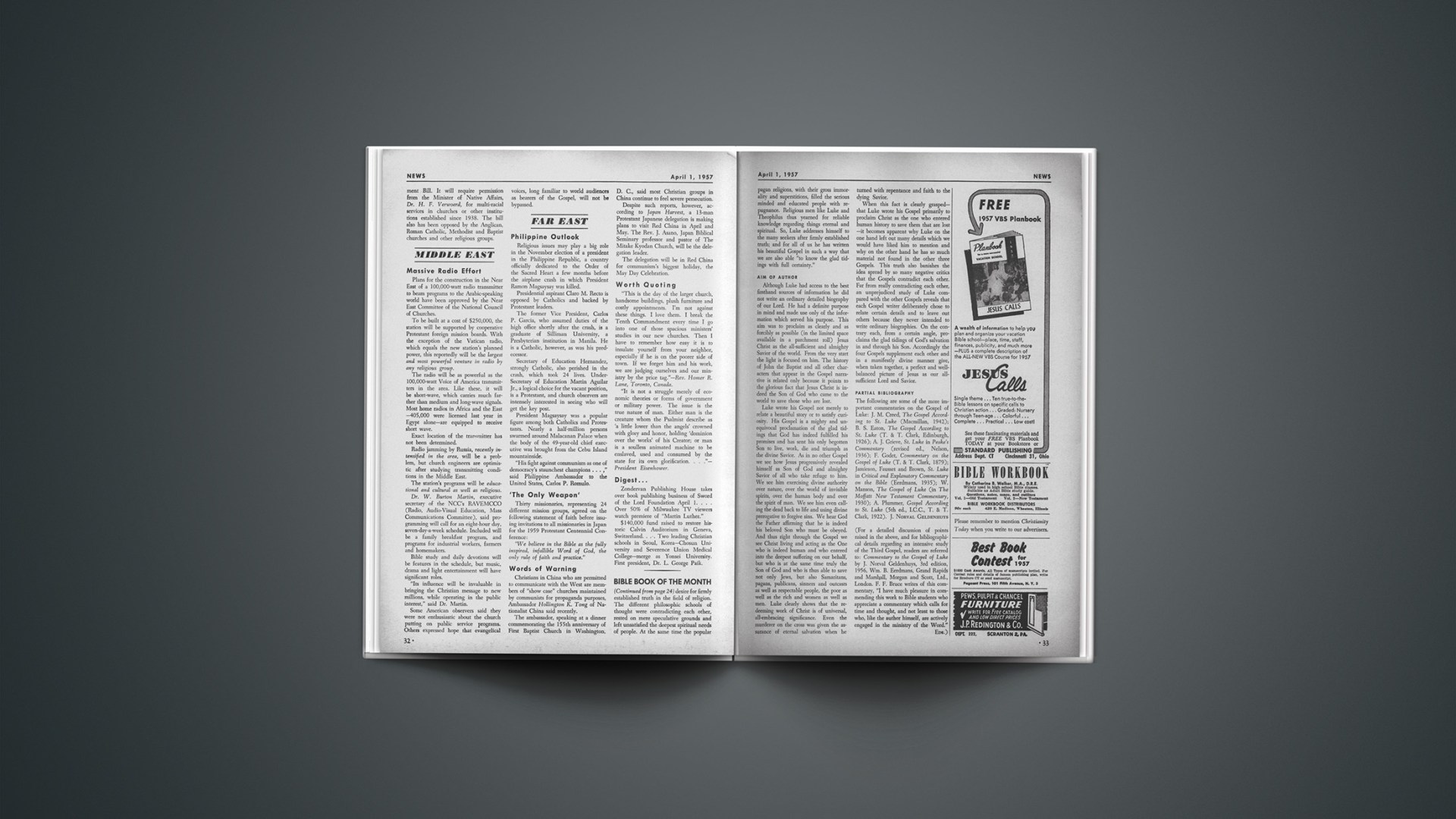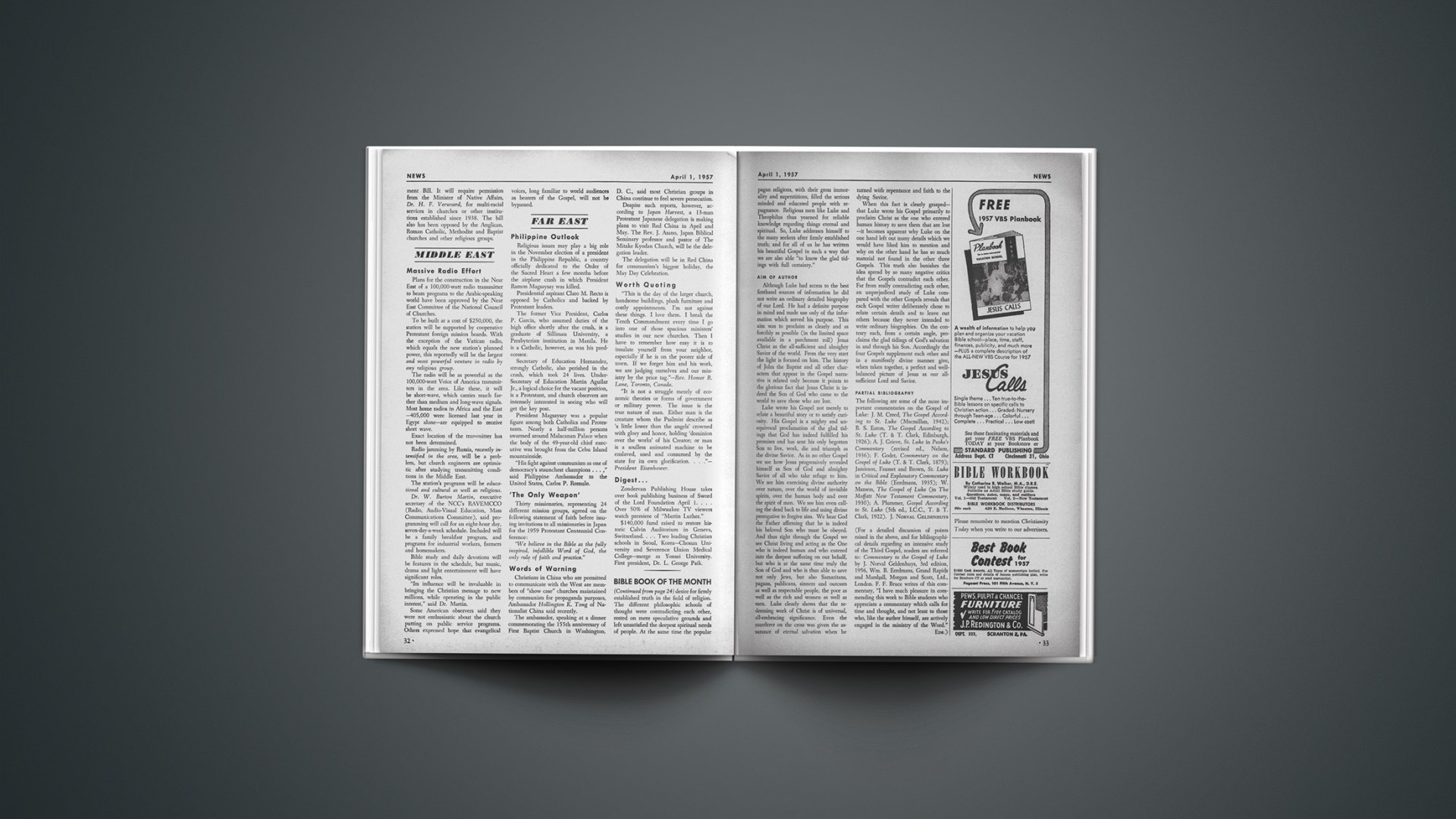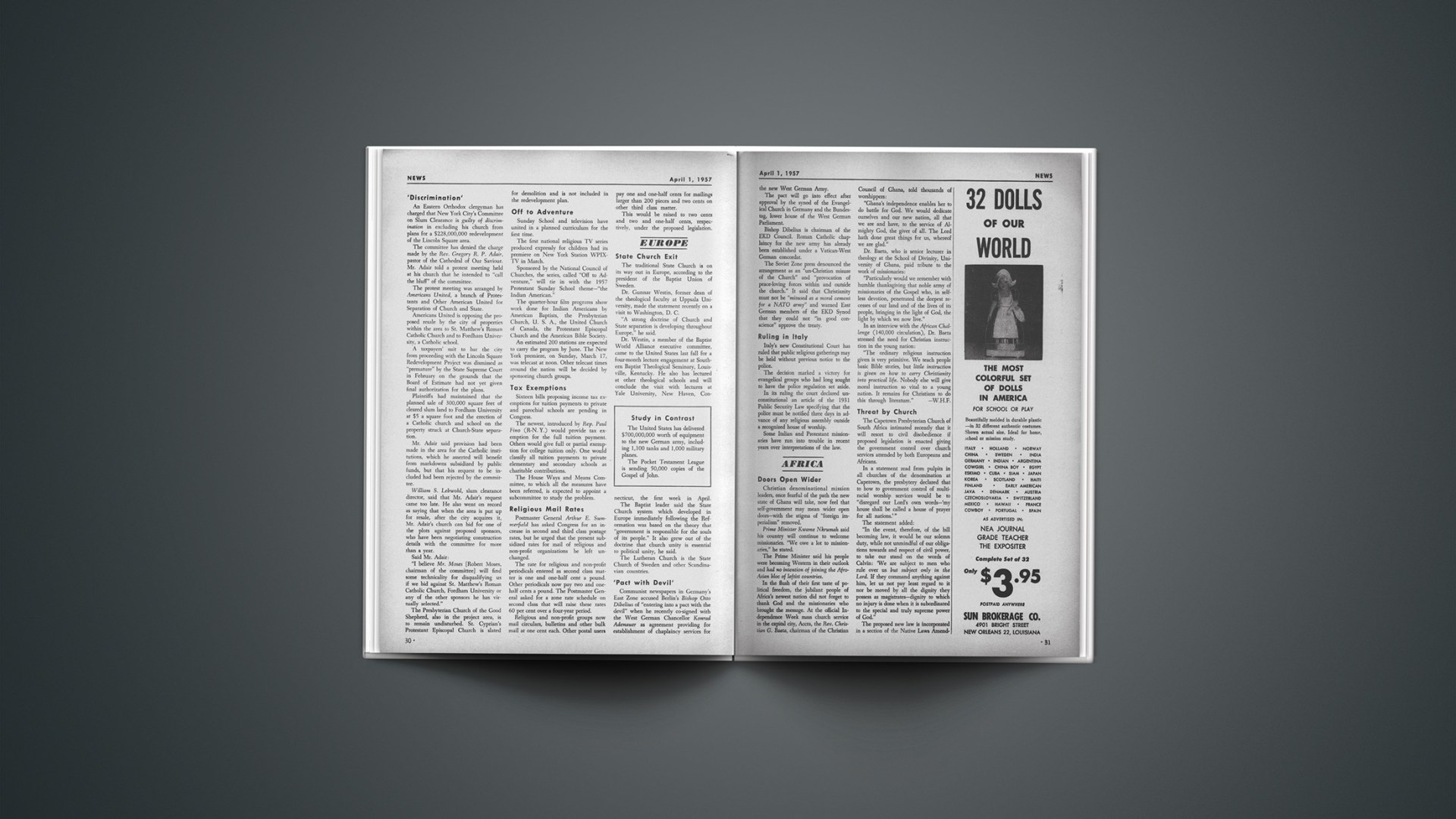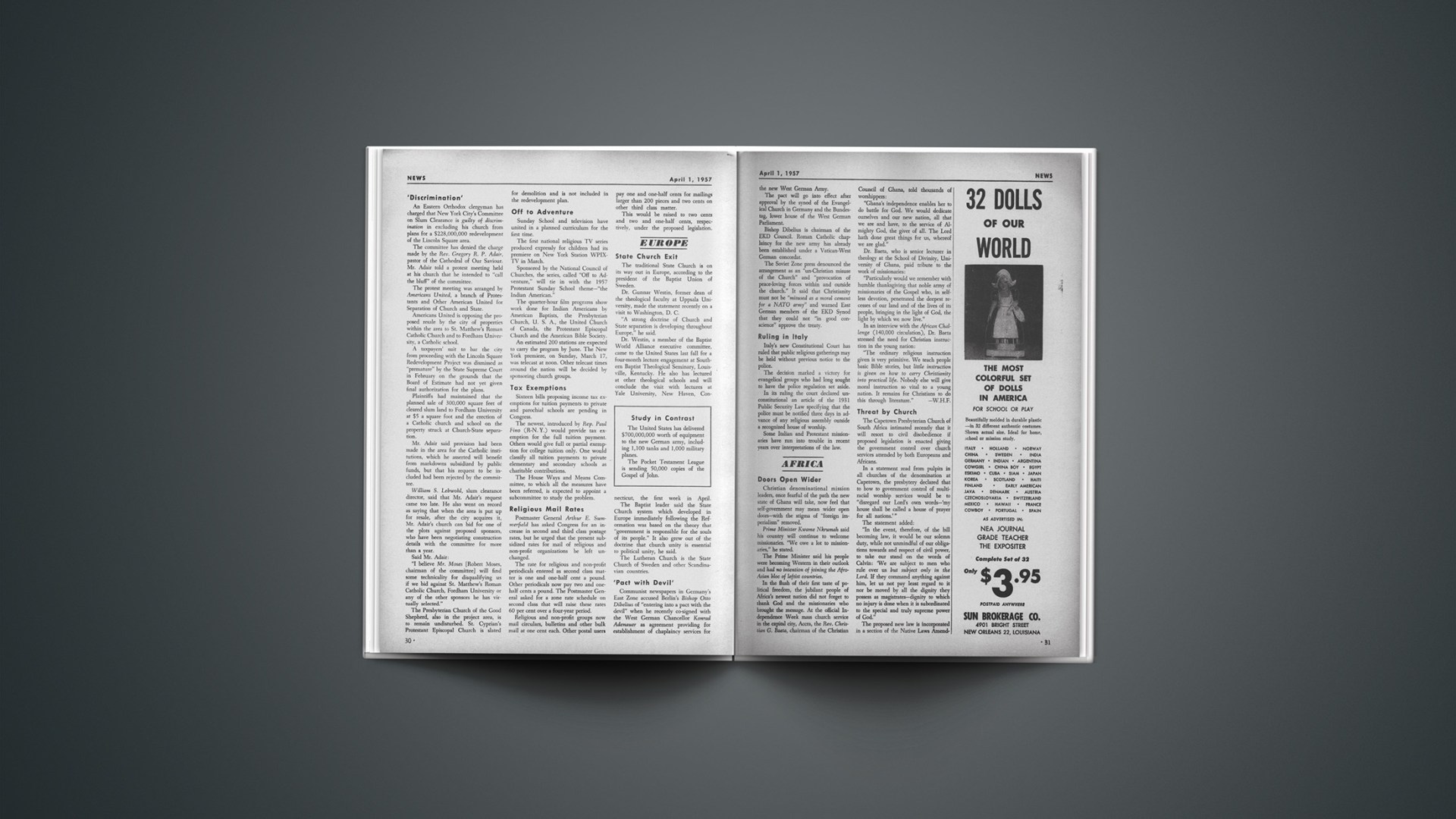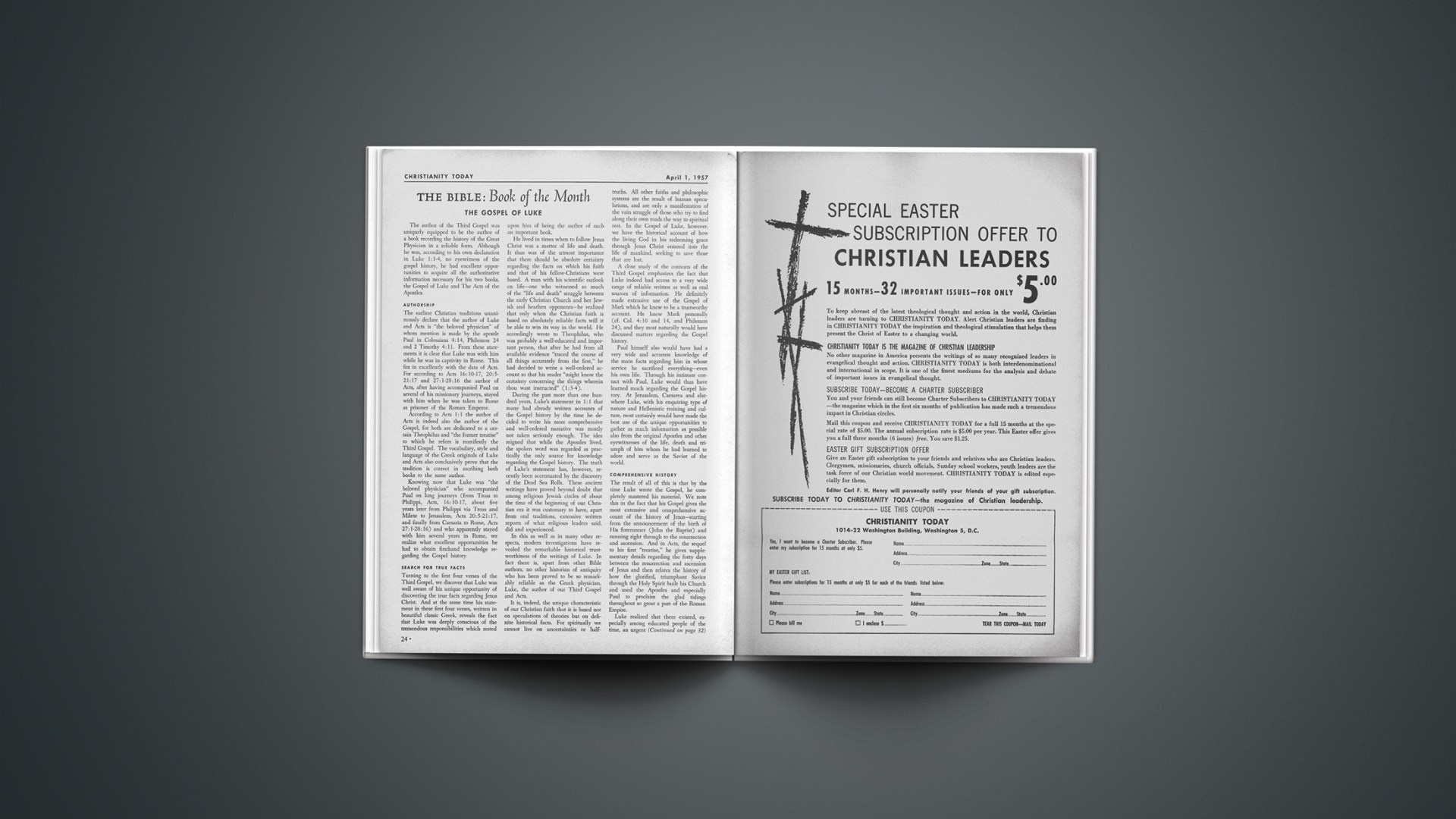Webster’s New Collegiate Dictionary defines “to propitiate” as “to appease and render favorable.” This word or its derivatives appears only three times in the King James version:
Romans 3:25, “… whom God hath set forth to be a propitiation through faith in his blood …”
1 John 2:2, “He is the propitiation for our sins …”
1 John 4:10, “… God sent his Son to be the propitiation for our sins.”
The equivalent Greek word hilasmos and its cognates, however, appear some eight times in the New Testament and as often as 221 times in the Septuagint.
Pagan Use Of Terms
These words are not found exclusively in sacred literature but are fairly common in both classical and Hellenistic Greek. When used as religious terms in a heathen context, they are ordinarily charged with various unfortunate connotations, due to the pagan conception of the nature of the gods and of their relationship to man. We may mention the following:
1. The gods were viewed as very whimsical and temperamental beings who easily took offense and whose favor had to be curried by special gifts and sacrifices. Their good will could be bought by a “process of celestial bribery”, as Leon Morris terms it (Expository Times, LXII [May 1951], 227).
2. This appeasement was seldom conceived in a moral context. The need for satisfaction was not grounded in ethical considerations but rather in the arbitrary whims and tantrums of the gods.
3. There was little if any correlation between the gravity of the offense committed and the importance or value of the propitiatory offering.
4. In some instances the transaction was morally objectionable, occasionally revolting, as in the case of human sacrifices or of sacred prostitution.
It may be a matter of some surprise that the Septuagint translators and the New Testament authors could have seen fit to use words so heavily freighted with unfavorable connotations and apply them to the lofty conceptions of the Hebrew-Christian revelation. In this connection it may be well to remember that the sacred writers and translators had to use a mortgaged vocabulary, which they had to redeem and elevate in order to proclaim the sublime truths of the divine message. The words “God”, “faith”, “salvation”, “cross” and many others are examples of this very general process of regeneration of the language, by which common and even base words were instilled with new life and nobility in the pages of Holy Writ.
A Profound Difference
The profound difference between the biblical and the pagan usages of propitiation was emphasized by C. H. Dodd in a noted article in the Journal of Theological Studies (XXXII [1931], 352–360). He called special attention to the fact that in the biblical context God is often the subject of the action, the very one who provides the means of restoring the sinner to favor. In this Dodd’s conclusions, while not startlingly original, may scarcely be called in question. However, Dodd went so far in this direction as to set forth the thesis that in the biblical language the idea of “pacifying the displeasure of the Deity” is absent and that the translations “expiate”, “cleanse”, “forgive” should be substituted for “propitiate”. The last-named word would thus be eliminated from the English Bible.
Relevant Observations
A detailed discussion of C. H. Dodd’s position may be found elsewhere (cf. Leon Morris, op. cit. and The Apostolic Preaching of the Cross, 1955, pp. 125–185; also R. Nicole, “C. H. Dodd and the Doctrine of Propitiation,” The Westminster Theological Journal, XVII [May, 1955], 117–157). We must confine ourselves here to the following observations.
1. While certain modifications in the circumstantial connotations of the words may well be assumed, it is very difficult to believe that the essential meaning of appeasement could have been systematically banished in Scripture. If such had been the intention of the Septuagint translators and of the New Testament writers one can scarcely see why they would have failed to choose other terms, terms which would have expressed rather than obscured their thought. The view that they could use hilasmos and its cognates without meaning propitiation is just as unlikely as the surmise that modern writers would use “propitiation” when they wish to avoid any connotation of appeasement!
2. While certain scholars have endorsed C. H. Dodd’s conclusions, many others can be listed in support of the traditional position. In the very recent English translation of Bauer’s monumental Greek-English Lexicon of the New Testament (1957), the meaning of “propitiation” predominates (cf. pp. 275, 376).
3. The substitute renderings “expiate”, “purify”, are less specific than “propitiate”, “placate”. Yet sooner or later the question must arise: “Who demands expiation or purification, and why?” If the answer be “God does, in the exercise of His righteousness,” we are back to the traditional view, entirely consonant with the carefully avoided term “propitiation”. If the answer be “Man does, for the satisfaction of his own moral needs,” we are faced with a view of salvation which is so greatly at variance with the biblical conception on so many points that one is truly surprised to see its upholders attempt to harmonize their position with Scripture or to try to explain away the implications of just one term like propitiation.
4. The thoughts of the demands of divine justice and of the wrath of God against sin and the sinners are extremely prevalent in Scripture. According to Leon Morris, the latter concept is met in over 580 occurrences in the Old Testament alone (The Apostolic Preaching of the Cross, p. 131). While in the New Testament this theme may be less frequently brought to the fore, when this is done, it is in terms perhaps even more emphatic than in the Old Testament. This will be at once apparent if one reflects upon the statements of Jesus on the misery of the lost in the other world. To attempt to by-pass this great mass of evidence is to do manifest injustice to the divine revelation. Furthermore, by undercutting God’s justice, holiness and utter abhorrence of sin, one undermines and brings into jeopardy the whole moral nature of God. Yea, even the love of God, far from being enhanced in this process, becomes degraded to a sentimental complacency, unworthy of any being with true moral fibre.
5. It is important to emphasize at this point that opponents frequently, and upholders occasionally, misconstrue the Christian idea of propitiation. This is the case when propitiation is conceived as a turning of God’s wrath into love, rather than the provision of his love in order that his wrath may be averted in full consistency with his moral nature. This is the case when propitiation is caricatured as in intervention of the compassionate Christ to shield the helpless sinner against the vengeful blows of God the Father, who, as a bloodthirsty tyrant, delights in the suffering and destruction of his creature. Conceivably, some occasional insufficiently guarded language on the part of conservative preachers and writers may have tended to accredit such lamentably inaccurate misapprehensions. It behooves the evangelical believer, however, to react with utmost vigor against such distortions, and to proclaim in its unsullied beauty the biblical doctrine of propitiation as the gracious provision made by God himself whereby the effects of his righteous anger against sin may be averted and the sinner may receive the blessings of his paternal love without infringement on his holiness and moral government. In this concept, far from having a disparagement of God’s love, we may perceive the very triumph of it: love of the Father, who gave his son for the redemption of man (John 3:16); love of the Son, who shed his precious blood for the remission of sins (Matt. 26:28, Rom. 5:8); love of the Holy Spirit, through whom the priceless offering was made (Heb. 9:14), and who applies its benefits to the redeemed. To borrow a phrase from an able Roman Catholic exponent of substitutionary atonement, the propitiatory sacrifice of Jesus Christ is “the invention and the triumph of the infinite love” of the triune God (cf. A. Medebielle, “Expiation.” L. Pirot, ed. Supplement au Dictionnaire de la Bible, III, 259).
Roger Nicole holds the Licence d’enseignement es Lettres Classiques (M.A.) from the Sorbonne (Paris) and a Th.D. degree from Gordon Divinity School. He is former president of Evangelical Theological Society. Since 1945 he has been Professor of Theology at Gordon Divinity School. He is presently preparing a volume on the doctrine of the atonement.
We Quote:
MADAME CHIANG KAI-SHEK
First Lady of Free China
The meaning of the Resurrection is Faith Triumphant, the Pledge Redeemed, The Cross Vindicated. Without Resurrection the Church would have died with the dispersal of the disciples there and then after the Crucifixion. With Resurrection the Christian Church marches forward toward Victory. This is what we see when we look forward from Calvary. What we took to be the shadow of death haunting our Lord from Bethlehem to Calvary proves to be, in the end, the Light of Life.—In an Easter message of hope to Chinese Christians in Formosa.
F. W. DILLISTONE
Dean of Liverpool Cathedral
Here is the Light which integrates all other lights.… Here is the Word which fulfils all other words.… He is the image of the God Who had never been seen by mortal eye. He is the Word of the God Whose actual voice had never been heard by mortal ear.—In Christianity and Communication, p. 47.

